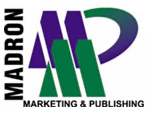In the early stages of any marketing campaign — before you’ve hired a copywriter or lined up potential launch dates — there are a handful of things you must know in order ensure success.
These three things aren’t meant to serve as a checklist after you’ve created your campaign…
Instead, they’re meant to help you before you begin — in order to help create the best possible marketing piece.
1. You Must Know What Sets Your Product Apart
Think about any of your most common buying decisions and you’ll realize…we’re all bombarded with choices these days.
Whether it’s the dozens of brands and varieties of bread at the supermarket or the cell phone plan – and provider – we select…nothing seems as simple as it used to be.
Now think of your potential customer.
Given the nature of direct marketing – and the saturation of advertising content – there’s a good chance he or she is overloaded with information on a regular basis.
So when it comes time to make a decision on buying your product or service – chances are the customer has already been exposed to plenty of advertisements, articles and buying opportunities.
That makes your initial challenge crystal clear: you must differentiate your product from all the others.
Ask yourself – what is it that makes your product stand out from the rest?
Does your product contain ingredients that set it apart? Is it made via proprietary techniques? Do you have a superior track record to your competitors? Who discovered your product and how? Is there a unique story involved in the creation of your product?
Any of these items can help you establish a unique position in the marketplace. But don’t rely on your own marketing team – or simply the answers to the questions listed above.
Instead…ask your existing customers why they bought.
You may think, for example, that your product’s powerful combination of ingredients is the most important piece of the puzzle. But your customers may feel that your product’s easy-to-swallow capsule form is what helped most with their buying decision – and that type of information should never be ignored.
But no matter what it is that makes your product unique – it’s important that you understand before your first direct marketing campaign just what it is that will make your product stand out from the dozens of others you’ll be competing with.
2. You must know who you’re selling to…and what makes them tick.
In order to give your campaign the greatest chance for success, you must understand exactly who it is you’ll be selling your product to.
With direct marketing, in many cases, you’ll be renting lists to use when mailing (or emailing) your promotion – and most of the time, those lists come with rough descriptions of the demographics involved.
But in order to truly understand the prospect you’re marketing to…you need to go a bit deeper than just simple demographics.
You need to walk a mile in your prospect’s shoes – and understand just what it is that makes him tick.
One way to do that is to “seed” yourself on a handful of active mailing lists – your list broker can help you with this simple process – so that you can see just what kinds of advertisements your prospect is receiving on a regular basis.
Just reading the mail that your customer reads regularly will give you lots of clues as to what’s most important to him…but I’d recommend going even further.
If it’s possible, I’d recommend communicating directly with your customers or prospects. This can be done by listening in on customer service calls – or even setting up simple focus groups.
When evaluating what your customer reads – and listening to him speak – there are a few things you need to be on the lookout for as it relates to building your own successful direct marketing campaign…
What is it that keeps your customer awake at night? — What does he fear the most? Is he afraid of death? Or afraid of becoming a burden – financial and otherwise – on his loved ones?
What is it that your customer wants the most? — Is he looking for relief from pain or from debt? Or is your prospect motivated by appearance or how others perceive him?
Who do your customers trust…and who are they suspicious of? — Does your customer generally trust the government? His financial advisor? The mainstream media? His primary physician…or “mainstream” medicine in general?
All of these are important questions to consider when learning what makes this person tick.
3. You must know what your customer’s objections will be…and how to answer them.
One of the disadvantages of direct marketing – or advertising in general – when compared with direct sales is that the communication is only one way.
A good direct salesperson can adapt his message and respond to each customer’s unique individual objections “on the fly.”
You can’t do that with direct marketing – so instead, you’ve got to be thoroughly prepared to answer each potential objection your customer might raise…in some cases before the customer even thinks of it!
Here are a few of the objections your prospect might have…along with suggestions for how to overcome each:
* I don’t need this product – In most cases, you are constantly battling to overcome this objection. From the very first moment the prospect looks at your headline, you’re battling his natural skepticism. That’s why a clear, powerful promise – straight away – sets the tone to overcome this initial objection and convince the customer to begin reading. Once the customer starts reading your letter…you need to constantly remind him of that initial promise – and keep him interested with a steady stream of added benefits.
* This will never work for me – The best way to overcome this objection is with powerful testimonials that come from people the prospect can relate to. In most cases, this will mean including a wide array of testimonials – from men and women of different ages – to make sure the prospect can find one to identify with by reading that personal success story detailing just how well your product works.
* I’ve already tried it before – Many times, upon glancing at the first few paragraphs of a direct marketing piece, a prospect will instantly group your product with one he or she has tried before and had a negative experience with. In cases like this, your ability to differentiate your product from others on the market – and the customer’s own past experiences – will be critical.
* This sounds good…but I’m not ready to order just yet – Another common objection is that the customer feels convinced that your product will work…but he’s just not ready or motivated to buy at this moment. This could be a signal that your advertisement just isn’t strong enough…but in many cases, it is also simply an objection that can be overcome with a powerful close. As you wind up your sales copy, it’s important to not only remind your prospect of the benefits he’ll enjoy with your product…but also to provide a convincing incentive to order now. This can come in the form of a fast-response bonus…a warning of a future price increase…or even warnings of limited product supply. No matter what you decide…make sure the incentive to order now is powerful enough to motivate those people who may otherwise want to think it over some more.
Jody Madron is a results-oriented copywriter with more than 20 years of breakthrough marketing experience. To learn how Jody can deliver results-boosting copy — ahead of your deadline — visit www.MadronMarketing.com.

